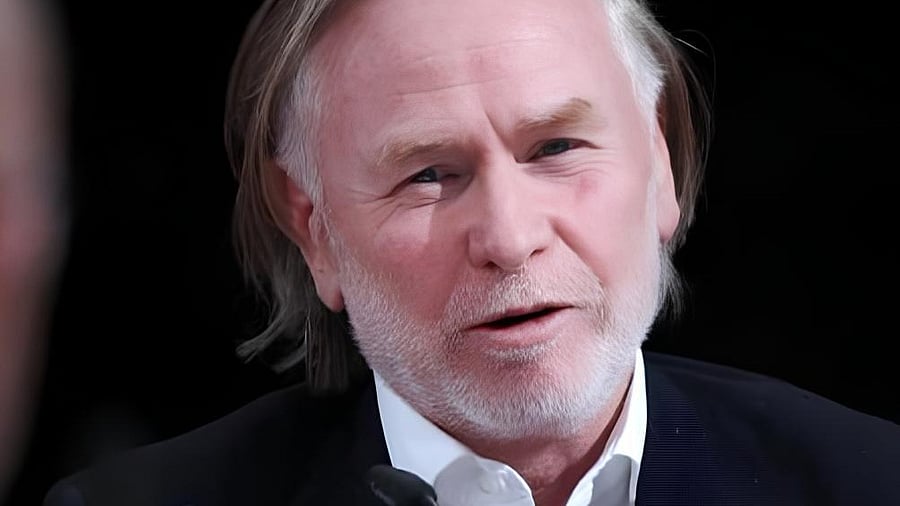
Australian High Commissioner Philip Green
Credit: Special Arrangement
Australia believes that India will be the third-biggest economy by 2030 and seeks to complement that growth by supporting the country’s strides in the energy, tech, and agriculture sectors, Australian High Commissioner Philip Green says in a conversation with DH’s Chiranjeevi Kulkarni. Excerpts from the interview:
The Economic Cooperation and Trade Agreement (ECTA) has been credited for doubling merchandise exports from India — from $12.2 billion in 2020–21 to $26 billion in 2022–23. However, the trade deficit had widened from $8.5 billion to $12 billion during the same period.
We believe that the deficit has narrowed now. The truth is a large amount of Australia–India trade is done in commodities that are not particularly affected by free trade deals. For instance, if you take coal out, India has a surplus trade with Australia. If you take the last five years, India's exports to the world have gone up by 35%. However, Indian exports to Australia went up by 67%. What's occurring is — and people of Indian origin are part of it — Indian and Australian businesses are finding ways to trade.
Are there sectors that need more focus?
There are areas where trade can grow. India is building a massive capability in electric vehicles (EVs). To power EVs, you need lithium, and Australia accounts for more than 50% of global lithium production. But none of it goes directly from Australia to India. What I would like to create is a supply chain in which part of the lithium processing happens in Australia and another part in India. Another area is India's journey to make green steel. Many experts tell me that there is a midpoint where India will use LNG, not coal, to make steel — and we can supply the LNG. These are two things that I am working hard to make happen.
Karnataka is trying to be a leader in semiconductor design and fabrication, along with other information technology solutions. Is there a role for the state in driving the bilateral relationship further?
I think so. These sorts of strategic technologies are increasingly part of the effort that we are making to keep our region open and free. Australia wants India to emerge as a major supplier of both solar panels and semiconductors because more reliable sources of those products would be important to Australia.
But here is another way in which Australia can be helpful. The underlying material that all of these semiconductors and solar panels are made from is polysilicon, and India sources all of that from a third country.
Polysilicon is made from quartz, of which there is an abundant supply in Australia. As India grows, we would be able to supply polysilicon. So, getting that supply chain going from Australia to India, including to Bengaluru, is very important.
Do you see a major role for Australia in India's target of achieving 500 GW of green energy?
Absolutely. We are settling a contract right now to establish an academy for technicians and experts in the field of rooftop solar, and we will train 2,000 youngsters — mostly women — to roll out the 10 million rooftop solar scheme announced by Prime Minister (Narendra) Modi. We will also bring delegations of firms that can support the critical backend systems. We have gone around to your renewable suppliers to understand their critical problems. We are putting those questions to our scientists so that they can directly support the development of Indian industries.
A number of foreign universities are setting up campuses in India. Do you think the quality of education will be the same as that provided at the home campuses?
We have two Australian universities operating, and two more have announced their campuses. I spoke to the vice-chancellors. For them, quality is fundamental. You have to understand that they have a brand to protect. So, the quality of education they offer here will be the same as that in Australia.
Is it better for foreign universities to tie up with eminent Indian institutes?
There is a lot of that already. There are partnerships in PhD programmes and degrees. The campus means Australian-quality education will be available for Indian consumers at half the cost and without the complications of a family member travelling far away. It’s a choice for the Indian consumer.
Have the two countries started working on research in agriculture and climate-related issues?
Yes. We are working to bring more delegations of agricultural experts to India. A few months ago, I led such a delegation to Uttar Pradesh. They met a large number of farmer groups to identify new things they can do together in fields like climate-adapted seeds and better irrigation practices that have digital capabilities built into them.
Experts from Australia are testing out different forms of intercropping and also searching for solutions to climate and other stresses. Now, as we are negotiating the second phase of the free trade agreement, we would like to think that one of the ways we can reach a new settlement in terms of our bilateral economic relations is by extending more support for India's agritech sector.